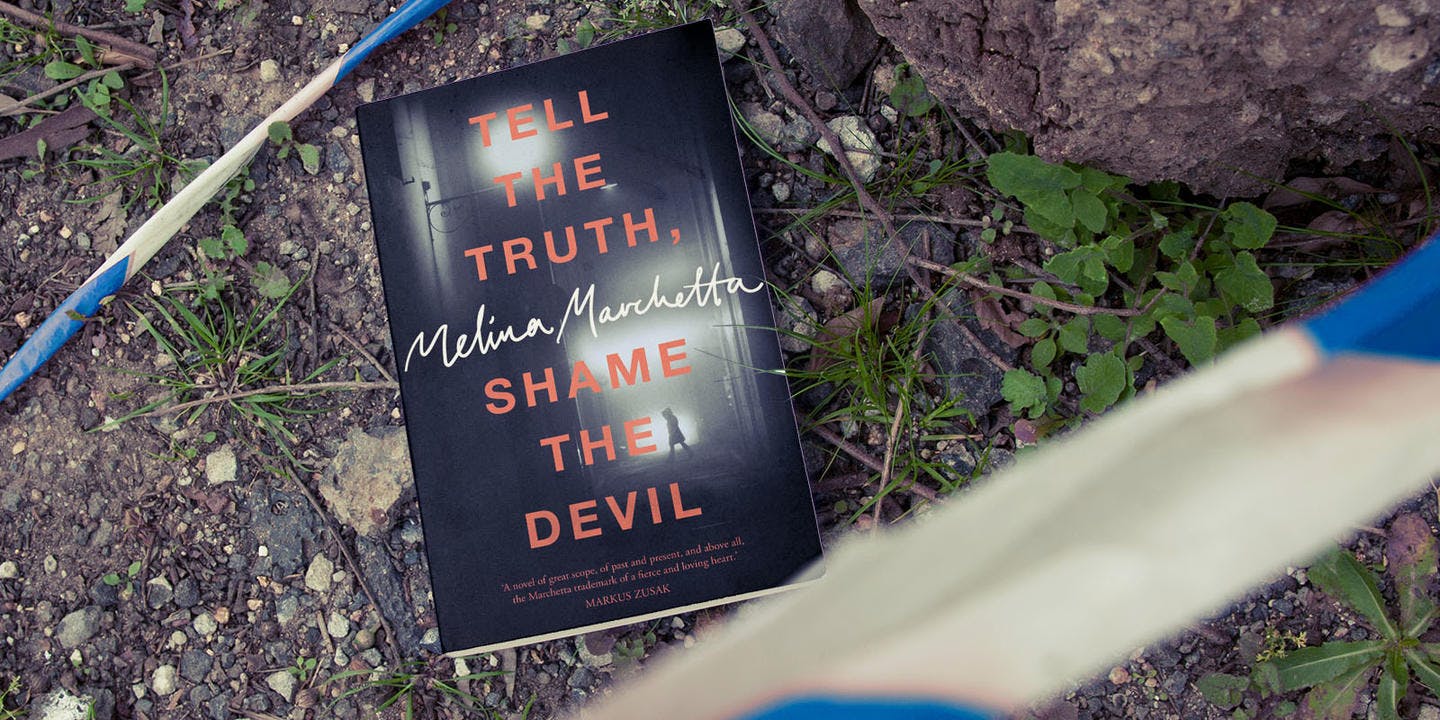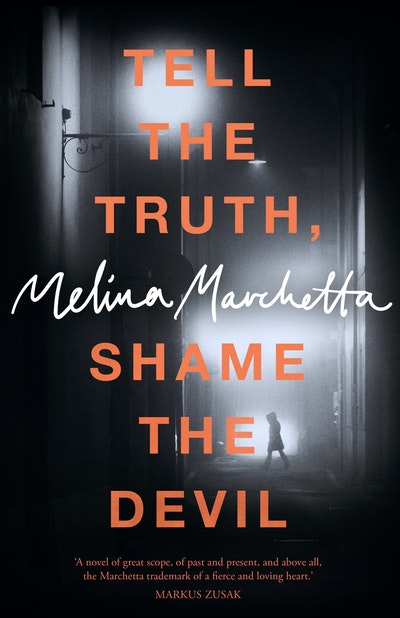Melina Marchetta’s Tell the Truth, Shame the Devil – a memorable book club choice.
Full of unforgettable characters, social insight and wry wit, Melina Marchetta’s Tell the Truth, Shame the Devil is a novel about human identity, lost children and the nature of real love. All perfect fodder for an inspired book club meet-up. Here are some questions to get your next reading group discussion buzzing.
Reading Group Questions
- There are many very strong characters in this novel, especially women: people who have lost a great deal but still manage to live with dignity. Who in your opinion has lost the most? Noor? Anna Conlon? Saffron? Violette? Bee? Bish? Someone else?
- For a number of these characters, the lingering effects of the past are a more powerful influence on their lives than the present is. Discuss the ways in which each of them has come to terms with their past.
- Bish is an unlikely hero, but in the end that’s perhaps what he is. What do you make of him in this regard, and also as a man, a father, a husband, an ex-husband?
- Charlie Crombie is another complex character: what’s your opinion of him ultimately?
- Would you agree that Tell the Truth, Shame the Devil highlights important social issues in a subtle way, without telling readers how to think? Discuss those issues raised in the novel.
- Consider the way in which the novel looks at assumptions made about people, according to their race, gender, age, culture, social position. And the minor details that are blown out of proportion so as to confirm Noor’s guilt in the eyes of the public.
- Discuss the two key bus scenes that frame the novel: the one that is bombed at the beginning, and the one that acts as a means of deliverance at the end.
- The bombing incident inevitably begs comparison with recent events in Europe: how convincing did you find it?
- Social media has both a good role and bad role to play in the events of Tell the Truth – discuss these.
- Do you find the actions of the mainstream media in the novel true to life?
- The abandoned or lost child is a strong theme in Tell the Truth, as is the fracturing of families. Discuss how these are manifested.
- Tell the Truth also plays with the idea of people having to pay for the sins of their parents. To what extent do you think our views about this have changed over the decades?
- Discuss the scene in which Bee tricks her father into driving Violette across the Channel (chapter 5). Were you aware of something else going on here while reading?
- Consider the way in which the full reason behind Bish’s feeling of guilt about his son’s death is withheld: did you find that this rendered his character and motivation for acting stronger in retrospect?













